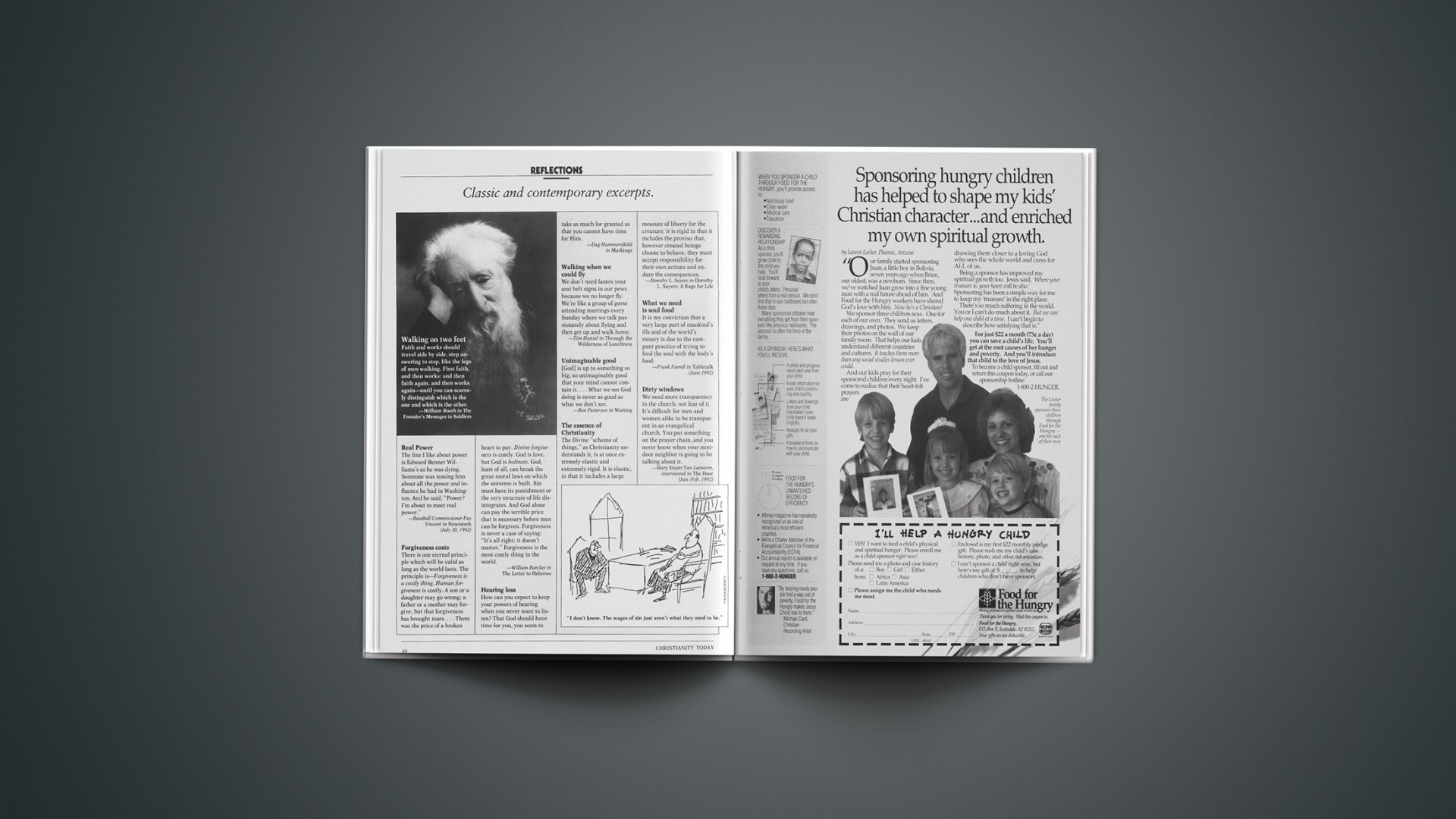Classic and contemporary excerpts.
Real Power
The line I like about power is Edward Bennet Williams’s as he was dying. Someone was teasing him about all the power and influence he had in Washington. And he said, “Power? I’m about to meet real power.”
—Baseball Commissioner Fay
Vincent in Newsweek
(July 20, 1992)
Forgiveness costs
There is one eternal principle which will be valid as long as the world lasts. The principle is—Forgiveness is a costly thing. Human forgiveness is costly. A son or a daughter may go wrong; a father or a mother may forgive; but that forgiveness has brought tears.… There was the price of a broken heart to pay. Divine forgiveness is costly. God is love, but God is holiness. God, least of all, can break the great moral laws on which the universe is built. Sin must have its punishment or the very structure of life disintegrates. And God alone can pay the terrible price that is necessary before men can be forgiven. Forgiveness is never a case of saying: “It’s all right; it doesn’t matter.” Forgiveness is the most costly thing in the world.
—William Barclay in
The Letter to Hebrews
Hearing loss
How can you expect to keep your powers of hearing when you never want to listen? That God should have time for you, you seem to take as much for granted as that you cannot have time for Him.
—Dag Hammersjköld
in Markings
Walking when we could fly
We don’t need fasten your seat belt signs in our pews because we no longer fly. We’re like a group of geese attending meetings every Sunday where we talk passionately about flying and then get up and walk home.
—Tim Hansel in Through the
Wilderness of Loneliness
Unimaginable good
[God] is up to something so big, so unimaginably good that your mind cannot contain it.… What we see God doing is never as good as what we don’t see.
—Ben Patterson in Waiting
The essence of Christianity
The Divine “scheme of things,” as Christianity understands it, is at once extremely elastic and extremely rigid. It is elastic, in that it includes a large measure of liberty for the creature; it is rigid in that it includes the proviso that, however created beings choose to behave, they must accept responsibility for their own actions and endure the consequences.
—Dorothy L. Sayers in Dorothy
L. Sayers: A Rage for Life
What we need is soul food
It is my conviction that a very large part of mankind’s ills and of the world’s misery is due to the rampant practice of trying to feed the soul with the body’s food.
—Frank Farrell in Tabletalk
(June 1992)
Dirty windows
We need more transparency in the church, not fear of it. It’s difficult for men and women alike to be transparent in an evangelical church. You put something on the prayer chain, and you never know when your next-door neighbor is going to be talking about it.
—Mary Stuart Van Leeuwen,
interviewed in The Door
(Jan.–Feb. 1992)










